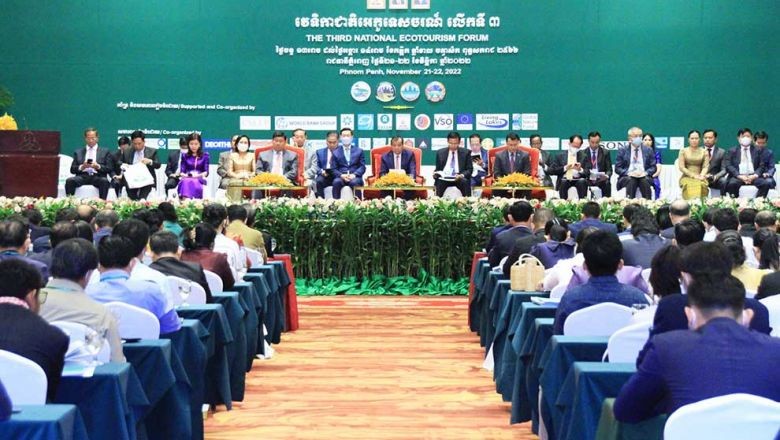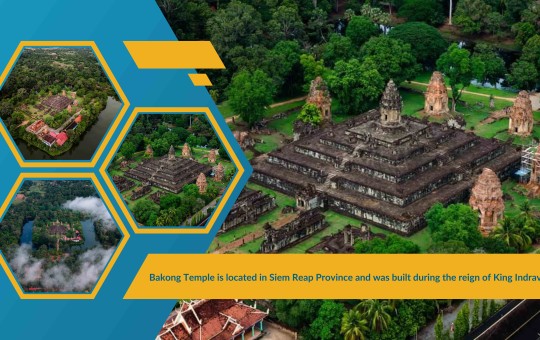
Eco-tourism key to post-Covid recovery
Minister of Tourism Thong Khon on November 21 outlined seven key recommendations for more efficient and effective post-Covid-19 development of the eco- and community-based tourism segments, with emphasis on turning challenges into opportunities.
Khon, who doubles as the National Committee for Management and Development of Tourism and Ecotourism Communities (NACTEC) chairman, was speaking at the opening ceremony of the first of two-day Third National Ecotourism Forum in Phnom Penh.
The first two recommendations are: determining which ecotourism sites are national priorities; and incorporating activities associated with eco- and other forms of tourism into communities with significant perceived potential, regardless under which institution’s purview any pertinent actions may fall under.
The third recommendation: building roads linking communities and providing them with electricity, clean water, telecommunications and internet infrastructure, waste management, unexploded ordnance clearance, malaria treatment and similar.
Fourth: convincing development partners and other national and international organisations to provide technical and financial support to the ministry and NACTEC for projects related to eco- and community-based tourism.
Fifth: drumming up support among the private sector to help tourism communities, specifically by offering and promoting tours that visit the areas that they manage, or activities that use their services.
Items six and seven: opening up channels for communities to raise their most pressing issues to resolve through more concerted efforts; as well as encouraging creativity and innovation in ecotourism development in step with the Fourth Industrial Revolution (4IR).
Khon commented that, in the span of a couple years, the Covid-19 crisis almost completely changed the structure of tourism in the region and the world, and added that the government is “determined and ready, with strong hope” to keep the sector alive in the face of any challenge.
The minister claimed that Cambodia is internationally recognised for its work in the eco- and community-based tourism scene, especially within the ASEAN framework, through its Public-Private-People Partnership (4P) development model, which he said focuses on local empowerment, maximising benefits to the grassroots and reducing poverty.
The model also seeks to promote adherence to the tenets of sustainability and responsibility, in line with the adage “conservation is development, development is conservation” as well as the principles of equitable profit-sharing, he said.
“Cambodia is rich in natural and ecotourism potential across the country, from the coast, which is collectively a member of the Most Beautiful Bays in the World Club, the Cardamom Mountains – including the Areng area – the Tonle Sap Lake and the northeastern region with the rare dolphins.
“The development of eco- and community-based tourism with a strategic and political approach indeed contributes substantially to local development,” Khon said.
Speaking at the forum, Minister of Agriculture, Forestry and Fisheries Dith Tina remarked that the agricultural sector is a significant driver of tourism development, including the eco- and community-based segments, through food supply, environmental means, inter alia.
He drew attention to the interdependence and complementation between growth in the agricultural sector, tourism development, and success in the protection of the environment and natural resources.
Tina commented that community farmers and producers need a market for their products to ensure sufficient income, while national and international tourists want to visit attractive places and need to eat.
At the same time, everyone has a responsibility to protect the environment and natural resources to increase, or at least maintain, the appeal of community areas for tourists, he said.
“The Ministry of Agriculture, Forestry and Fisheries will keep building up its capacity to provide support to and encourage communities across the country to participate more and more actively in agro-tourism and ecotourism development activities by: offering attractive places for tourists to visit; producing foods; providing services to travellers, as a source of income for households and people in the community; and acting as a strong shield to protect the environment and natural resources,” he said.




